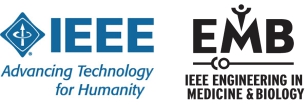EMBS Spring Conference March 19 2019 U-M Ann Arbor
Presenters from University of Michigan, MIT, and MC3 Corporation.
Free beverages and pizza slices (meat and veggie).

Topics are biomedical wearable sensing for extreme conditions, for physical performance, integration of electronics into disposable medical devices, and update of hearing devices.
Date and Time
Location
Hosts
Registration
-
 Add Event to Calendar
Add Event to Calendar
- 1320 Beal Avenue
- Ann Arbor, Michigan
- United States 48109-2140
- Building: Francois-Xavier Bagnoud Building
- Room Number: 1109
- Click here for Map
- Contact Event Host
-
Eric George
319-333-4415
- Co-sponsored by IEEE University of Michigan Student Branch
Speakers
 Brian A. Telfer, PhD Senior Staff Member, Bioengineering Systems and Technologies Group of MIT Lincoln Laboratory
Brian A. Telfer, PhD Senior Staff Member, Bioengineering Systems and Technologies Group of MIT Lincoln Laboratory
Advanced signal processing and AI for biomedical wearable sensing
Wearable monitoring systems are being prototyped to detect early degradation due to a variety of biomedical conditions, especially in extreme environments and for individuals in critical roles such as astronauts and first-responders. The use of advanced signal processing and artificial intelligence for wearable sensing will be described with examples to limit any danger of degradation.
Biography:
Brian A. Telfer is a Senior Staff Member in the Bioengineering Systems and Technologies Group at MIT Lincoln Laboratory. He received a BS in Electrical Engineering from Virginia Tech and an MS and PhD in electrical engineering from Carnegie Mellon. After working at the Naval Surface Warfare Center, where he was funded with an Office of Naval Research Young Scientist Award, he joined Lincoln Laboratory in 1995. His contributions have been in the areas of signal processing, machine learning, artificial intelligence and systems analysis, initially for ballistic missile defense and for the past seven years for bioengineering, particularly for physiological status monitoring. The focus of this work has been on prototyping and technology transition, with successful transitions leading to government contracts to industry for several hundred million dollars, as well as for smaller industrial contracts that have resulted in several hundred (and growing) physiological monitoring units. Dr. Telfer has organized body sensor network workshops and has served as Technical Program Co-Chair for the International Body Sensor Networks Conference in 2013 and 2015. He is a Senior Member of the IEEE (Institute for Electrical and Electronics Engineers), a member of the IEEE Technical Committee on Wearable Devices, and a 2018 recipient of the IEEE Region 1 Technological Innovation Award. He has been a member of several MIT Lincoln Laboratory internal funding selection boards, as well as technical lead for MIT LL’s Introduction to Radar Systems course and other radar courses. He has led several studies for senior leaders in the U.S. Government and has co-authored over 70 publications.
 Noel Perkins, Donald T. Greenwood Collegiate Professor of Engineering, Arthur F. Thurnau Professor in Mechanical Engineering of University of Michigan
Noel Perkins, Donald T. Greenwood Collegiate Professor of Engineering, Arthur F. Thurnau Professor in Mechanical Engineering of University of Michigan
Quantifying Human Physical Performance with Wearable Inertial Sensors
The combining of MEMS inertial sensors (angular rate gyros and accelerometers) with wireless technology make possible the tracking of 3D motion of just about anything one might want to understand, including complex human movements. This talk will review how this technology has advanced our understanding of human movements by quantifying human physical performance using wearable inertial sensors. Drawing examples from the performance of athletes and soldiers, we will review the challenges in using data from inertial sensors to define and to discriminate levels of performance.
Biography:
Research interests draw from the fields of computational and nonlinear dynamics with applications to wireless inertial sensors for human motion analysis, the mechanics of single molecule DNA and DNA/protein complexes, and structural dynamics.
___________________________________________________________________________________________________________________
Speaker:
Katherine D. Heidenreich, M.D. Clinical Associate Professor, University of Michigan, Michigan Medicine, Department of Otolaryngology-Head and Neck Surgery
Topic: Update on Hearing Devices
Biography:
Katherine obtained her B.A. in Molecular and Cell Biology at UC Berkeley (1996), and her M.D. at UC San Diego (2001). She completed a residency in Otolaryngology-Head and Neck Surgery at University of Maryland, followed by a vestibular and balance disorders fellowship at Cleveland Clinic (2007). She maintains a busy otology practice focused on hearing loss, dizziness, and balance disorders.
___________________________________________________________________________________________________________________
Speaker:
Ron Deang, Engineer III, Product Development, MC3 Cardiopulmonary
Topic: Integration of electronics into disposable medical devices
Agenda
| Time From (PM) | Time To (PM) | Duration (minutes) | Item | Speaker |
| 5:45 | 5:55 | 10 | Networking | All |
| 5:55 | 6:00 | 5 | Opening Remarks | Eric |
| 6:00 | 6:45 | 45 | Update on Hearing Devices | Katherine |
| 6:45 | 7:45 | 60 | Advanced signal processing and AI for biomedical wearable sensing | Brian |
| 7:45 | 8:30 | 45 | Integration of electronics into disposable medical devices | Ron |
| 8:30 | 9:15 | 45 | Quantifying Human Physical Performance with Wearable Inertial Sensors | Noel |
| 9:15 | 9:20 | 5 | Closing Remarks | Eric |
| 9:20 | 10:00 | 40 | Networking | All |
Pass the communication on. Please RSVP by registering.
Full program at https://r4.ieee.org/sem/chapter-xi/

